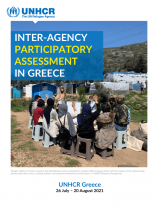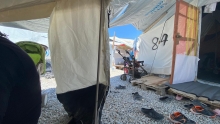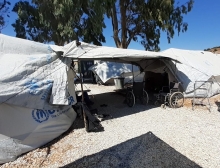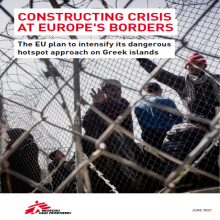Υγιεινή

UNHCR, the UN Refugee Agency, together with sister UN agencies, NGO partners, municipalities and authorities discussed with refugees and asylum-seekers across Greece to identify their main concerns and key recommendations around protection and integration. A regular part of UNHCR’s programming, the Participatory Assessment (PA) provides an opportunity for UNHCR and others to assess the existing humanitarian programmes and adjust future initiatives in line with refugees’ feedback.

Over the summer, the Legal Centre Lesvos (LCL) continued to seek redress before the ECtHR for people forced to live in the Reception and Identification Centre (RIC) in Kara Tepe, Lesvos (also known as Mavrovouni RIC or Moria 2.0), despite their critical state of health.
Between July and September, LCL submitted 9 applications for interim measures to the ECtHR requesting the urgent transfer of individuals and their families out of the Lesvos’ RIC into safer accommodation and their immediate access to urgently needed health care on mainland Greece.

Kos hosts the only pre-removal detention centre on the Eastern Aegean islands. Since January 2020, the Greek authorities have detained nearly every asylum seeker who has arrived on the island of Kos automatically upon arrival. This has historically included survivors of gender-based violence and torture, families with young children, elderly persons, LGBTQIA people, and people suffering from serious physical and mental health conditions. The automatic detention of asylum seekers is illegal under Greek, EU, and international human rights law, and yet the situation on Kos remains relatively unknown.



Over the past five years, an entirely avoidable and predictable policy-driven humanitarian crisis has been unfolding in the Greek islands of Lesvos, Samos, Chios, Leros, and Kos, with devasting consequences for the people trapped there. After fleeing their homes and surviving harrowing journeys to Europe, the indefinite containment, limbo, and systematic violence in Greece further traumatises people seeking protection.
